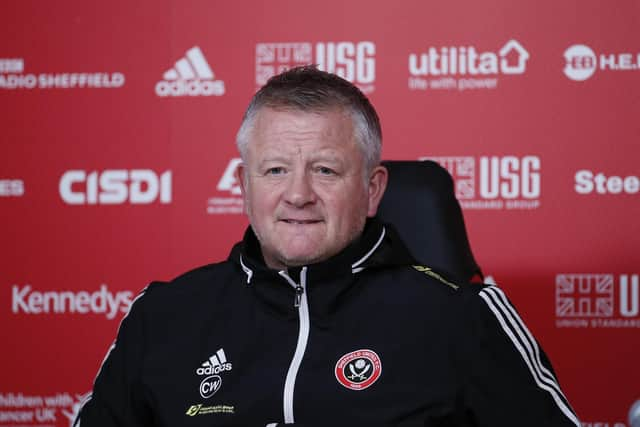What 'Bionic Blade' tells us about Sheffield United's transfer policy
and live on Freeview channel 276
But the quest to try and piece together ‘Bionic Blade’ - using different attributes and body parts from members of Sheffield United’s first team squad - is also worthy of serious study because, in terms of transfer fees, it reveals something important about the recruitment strategy which saw the climb from the third to the first tier of English football in only three years following Chris Wilder’s appointment.
Although the methodology used to complete the process might not have been the most scientific - a series of polls posted by The Star’s United writer James Shield on social media - those supporters who responded know more about qualities of those at the manager’s disposal than than the pundits and commentators who, following last season’s promotion from the Championship, insisted Wilder’s side would sink without a trace in the Premier League. Before the fixture calendar was suspended due to the coronavirus crisis, they were seventh - only five points behind fourth-placed Chelsea with a game in hand on Frank Lampard’s side - and preparing for an FA Cup quarter-final against Arsenal at Bramall Lane.
Advertisement
Hide AdAdvertisement
Hide AdYet, despite this success, United have spent relatively little on transfers. The seven players selected in eight categories, five of whom were signed by Wilder, cost a combined total of £13.5m. Or, to put it another way, less than three times the amount West Ham paid to acquire Sebastian Haller from Eintracht Frankfurt. And David Moyes’ men are 16th in the rankings.
The effectiveness of United’s work in the market reflects both the depth and the attention to detail Wilder and his chief scout Paul Mitchell employ before deciding their targets.
Mitchell keeps the exact details of the vetting process he has designed a closely guarded secret. But Wilder has shed a little light on the criteria potential acquisitions must fulfil in order to earn moves to Bramall Lane.
“Obviously we look at what they are like as players,” he said earlier this term. “But there’s a number of other things we look at as well, such as their character, how they will fit into our dressing room and also their injury records. You can be the best player in the world but if you’re never out there on the pitch then it doesn’t really count for much, does it. And all of these things are monitored over a long period of time.”
Advertisement
Hide AdAdvertisement
Hide AdUnited have also carved themselves a niche in the market by granting those from lower league clubs an opportunity to perform at the highest level. Only one of those to make the ‘Bionic Blade’ cut - Lys Mousset - was not part of the group which climbed out of the English Football League 12 months ago. Four of those selected were on the books when United lifted the League One title two years earlier.


That determination to do things differently - to try and compete by using intelligence rather than cheque book - will be crucial over the next 12 months as Wilder and his staff attempt to build on the progress they have made of late. At board level, it also explains why owner HRH Prince Abdullah bin Musa’ad bin Abdulaziz Al Saud has established a club in Dubai - Al Hilal United - which is likely to be used as somewhere to park youngsters Wilder and Mitchell have identified from overseas until they qualify for a work permit.
Even Sander Berge, who became the most expensive player in United’s history when he arrived from Genk in January, has been purchased ‘ahead of the curve’.
“I think there can be a little bit of snobbery in football at times,” Wilder said last year. “Sometimes, it’s not about the size of a fee. It’s about giving someone a chance or you can see they’ve got the ability to take it and improve.”
